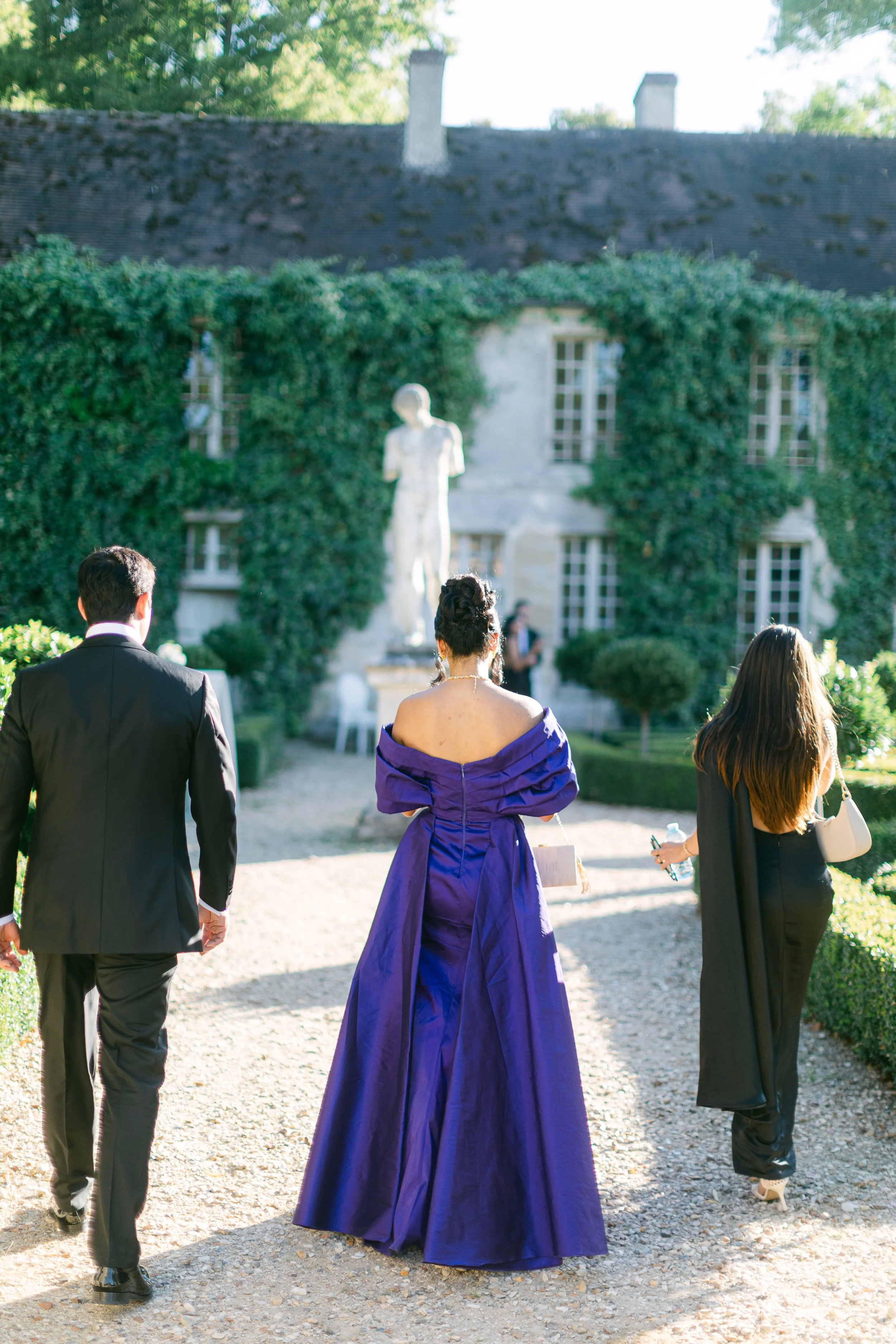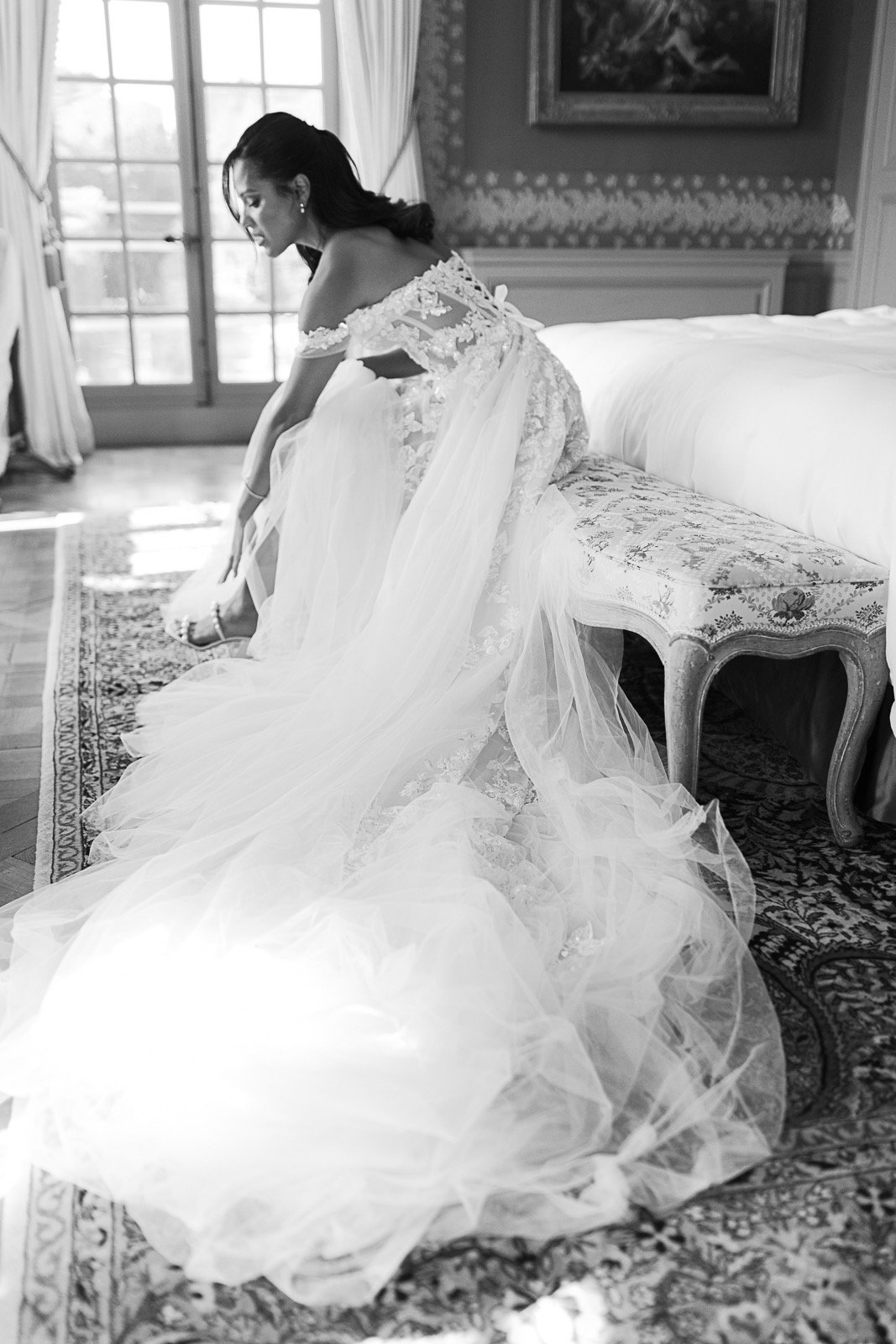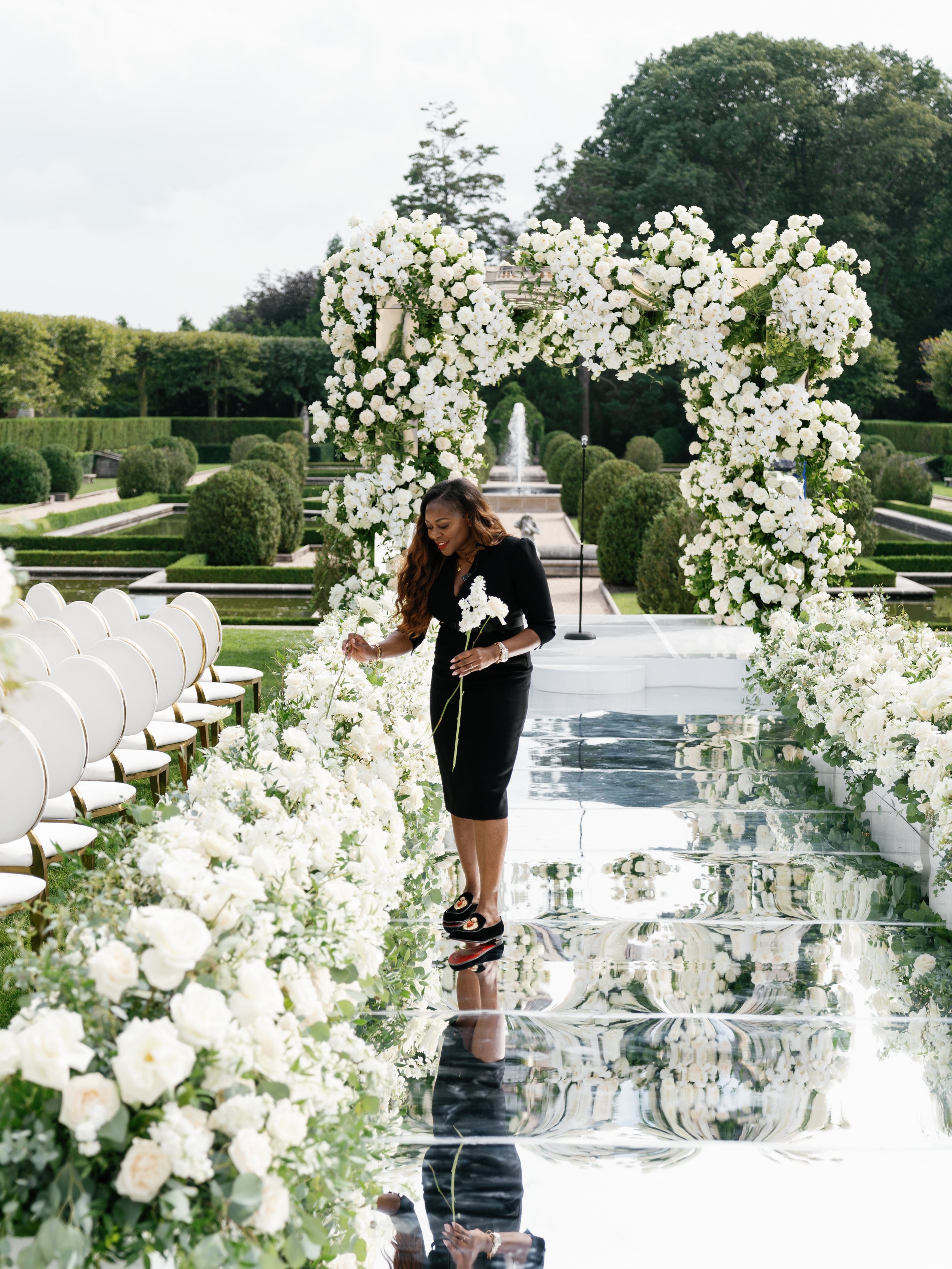Should You Wear White to a Wedding? A Guide for Guests and Vendors
In the world of luxury weddings, where elegance and tradition often take center stage, the question of whether to wear white to a wedding—either as a guest or as a vendor—remains a topic of much debate. As weddings become more personalized and trends evolve, understanding the unspoken rules of attire is crucial, especially when navigating the expectations of high-end celebrations.
Photography by Kent Drake Photography | Planning by Kesh Events
The Timeless Tradition
Traditionally, white has been reserved exclusively for the bride, symbolizing purity and distinction on her special day. This custom is deeply rooted in wedding culture and is often seen as a mark of respect for the bride's role. For many, wearing white as a guest or vendor can be viewed as overstepping this long-standing tradition.
Wedding Celebration at Chateau de Villette planned and designed by Kesh Events | Photography by Lucy Munoz Photography
As a Guest: Respecting the Bride's Day
When attending a wedding, particularly one with a high level of sophistication and attention to detail, it’s important to consider the couple’s vision for their day. The general rule is simple: if the invitation does not explicitly request that guests wear white, it’s best to avoid it. Opting for other elegant colors such as soft pastels, deep jewel tones, or even black (which has become increasingly accepted at upscale weddings) ensures that the bride remains the focal point.
In some cases, couples might choose a white-themed wedding, where guests are encouraged to wear white. However, this should be clearly communicated through the invitation or dress code. Unless you receive such guidance, it’s wise to steer clear of white, ivory, or any shade that might compete with the bride's attire.
Wedding/Event Planner - Akeshi Akinseye | Photography by Candace Sims
As a Vendor: Blending Professionalism with Etiquette
For wedding vendors, the dress code can be a bit more nuanced. While the primary focus is on professionalism, it’s equally important to respect the traditions and preferences of the couple. Vendors often blend into the background, ensuring that the event runs smoothly without drawing attention away from the festivities.
Wearing white as a vendor, whether you’re a photographer, planner, or florist, can send mixed signals. It may appear as though you’re attempting to blend in with the bridal party or the guests, which could be seen as inappropriate. Neutral colors such as black, gray, or navy are often preferred, as they convey professionalism while ensuring that all eyes remain on the couple.
Wedding Celebration at Chateau de Villette planned and designed by Kesh Events | Photography by Lucy Munoz Photography
Exceptions to the Rule
There are exceptions, of course. In some cultural or themed weddings, the couple may specifically request that vendors wear white to align with the aesthetic of the day. For example, at an all-white beach wedding, the couple might prefer everyone—vendors included—to match the serene and monochromatic setting. As with guests, these expectations should be communicated clearly by the couple.
Wedding Celebration at Chateau de Villette planned and designed by Kesh Events | Photography by Lucy Munoz Photography
In conclusion, wearing white to a wedding, whether as a guest or a vendor, should generally be avoided unless explicitly requested by the couple. By respecting this tradition, you ensure that the bride remains the centerpiece of her day, and you contribute to the overall elegance and harmony of the celebration.
For those planning their next luxurious event, always consider the nuances of tradition and modern etiquette. And remember, when in doubt, there are countless other ways to showcase your style without stepping on sartorial toes.
Planning a wedding that perfectly balances tradition with modern elegance? At Kesh Events, we specialize in crafting bespoke celebrations that reflect your unique vision. Let us help you create an unforgettable experience, down to the last detail. Contact us today to start planning your dream wedding.





